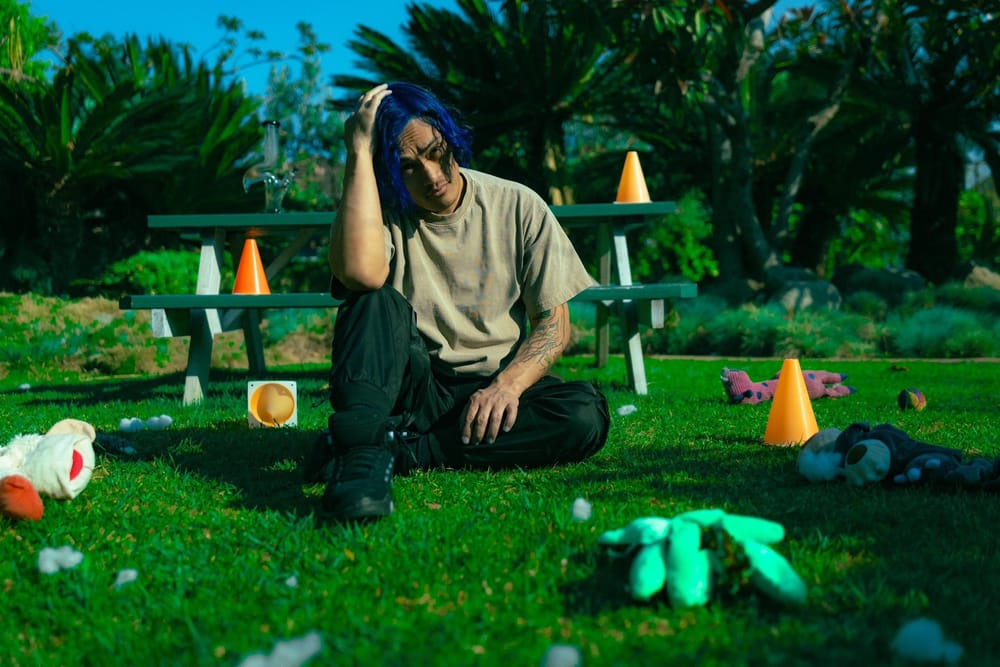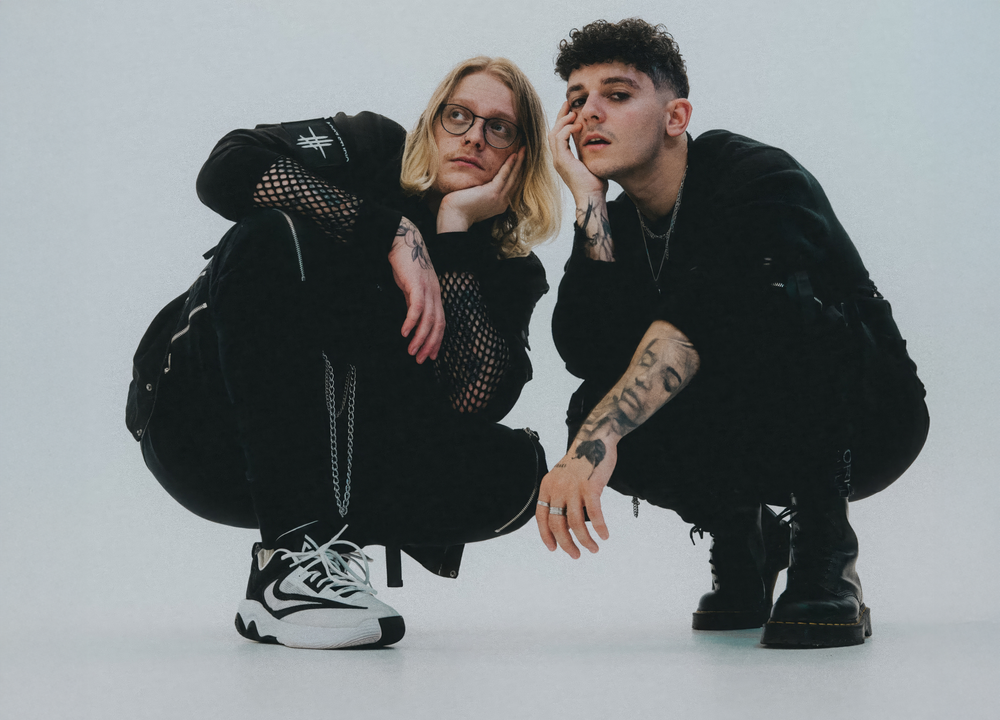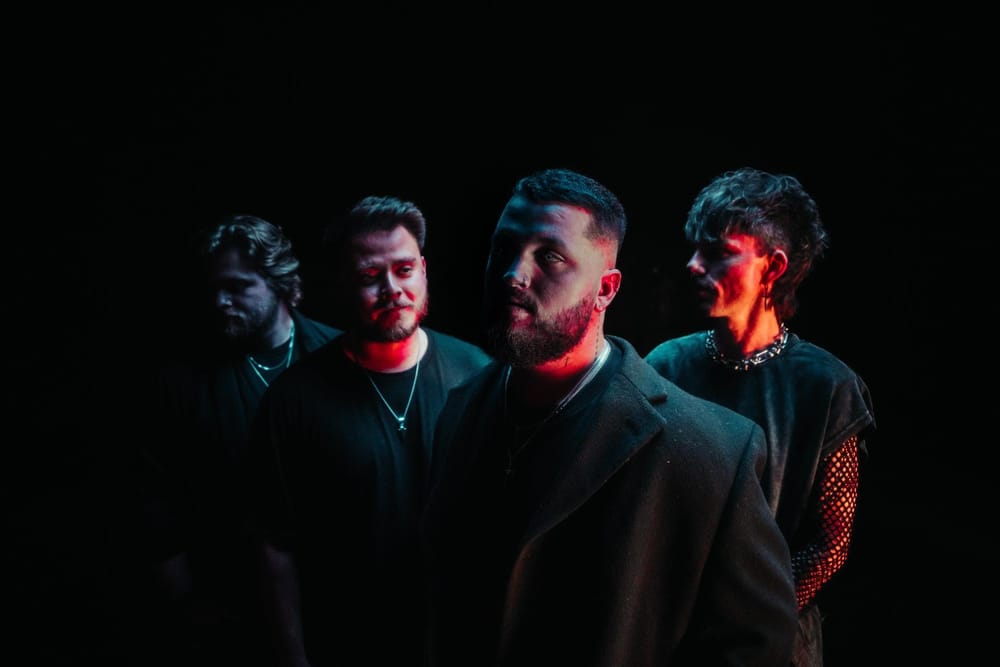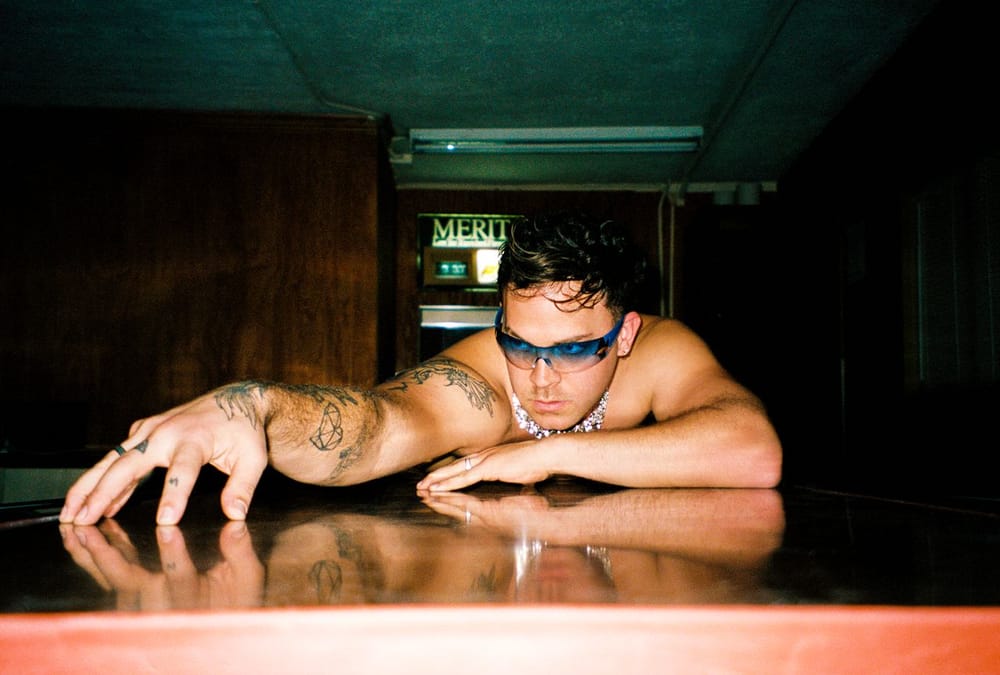“Every person has a story.”
Many individuals adhere to this statement, and if they don't, they ought to. The concept is rather simple if you stop to think about it. For every person you randomly pass on the street or at the mall, there is an entire lifetime full of experiences that you have no knowledge of.
The birth of a child, the loss of a loved one, the never-ending stress of a 9 to 5, the proudest of all the moments in that person’s life. All of the highs and lows, the memories of scraped knees up to the elation of a college degree. Every single person on the face of the planet has a story behind them that you may never know anything about, and this includes your favorite artists.
Darro is no exception to this rule.
Back in 2017, at just 24 years old, he received the sort of news that completely flipped his entire life upside down. A brain tumor. Two, in fact. Information that led to a journey that would take him through the highs of moving all the way to Spain and the lows of lying in a hospital bed for a week, waiting for an answer to the most important question of his life.
But just over a year before that nerve-wracking week, the entire road—paved with surgeries and recovery—the story started in a way that seemed, at the time, to be entirely unconnected.
In a recent interview with Darro that I was privileged enough to participate in, he opened up about his experience from start to finish.
“It was a two-year master's program for music performance. I was like, ‘You know what? That sounds dope. I'm going to leave the country for a couple of years.’ Meanwhile, during this time—I wish I could go back,” Darro explained last Tuesday, sipping from a decorative mug in his home out in sunny (and recently scorching) Los Angeles, California.
I would say towards the last couple of years of my bachelor's program and me arriving in Spain, I noticed that my body was starting to not act the way that it normally would—joint problems, mood swings, et cetera. It's really stuff that I'm, like, my body [isn’t supposed to be this way]. I started gaining a lot of weight. I started developing an underbite.
I had an overproduction of growth hormone, but I didn't know—it was very gradual. For the first three or four years, I didn't notice it, then eventually I started realizing, ‘Wow, I really do have an underbite.’ My back teeth and my bottom teeth were closing above in front of my front teeth. I was having trouble eating, biting into things, and chewing things, and it was frustrating and embarrassing. And I was in a program all by myself for the most part in a foreign country.
I felt like everybody was having the best couple of years of their life—that everybody was peaking. Meanwhile, here I was literally hiding my face in the corner. All of this to say, this was happening gradually over two years, and before I even found out that I had a brain tumor, I was so much more concerned about my jaw just because it's literally how I look. Not only that, but it was starting to affect my ability to sing and talk. I was starting to develop a lisp, but it was weird.
With desperation to be able to see himself in the mirror the way he once remembered, Darro began his search for solutions, none of which were optimal. Not in terms of treatment, and certainly not in terms of expense.
Before I even went to Spain, I was researching all kinds of jaw surgeries. ‘I think at some point I'm going to have to get jaw surgery to get this corrected because it's not going to go away on its own.’ It's literally bone growth.’ The only way to correct this is with jaw surgery.
Running at approximately $50,000 (USD), a procedure that is considered ‘cosmetic’ was absolutely out of the question. In America, that is.
There are a couple of reasons why I wanted to do it. In Spain. One, obviously, it was literally like $10,000. It's still a lot! But the second thing was in the US, the overwhelming majority consensus of how to treat an underbite like mine would be a year of braces, then the surgery, and then another year or two of braces afterward. I'm like, ‘No, I'm going to be famous in two years!’. That's what I was thinking.
But in Spain, they were doing this innovative new procedure called Surgery First. They actually perform the jaw surgery prior to giving you braces, and they use the fact that after the jaw surgery, your body's recovering very quickly and your face is really malleable so that your teeth move so much faster.
So I was like, ‘You know what? $10,000, surgery first, one year of braces—I mean, I can do that. I'll be done with my braces by the time I leave Spain.’ It was a no-brainer.
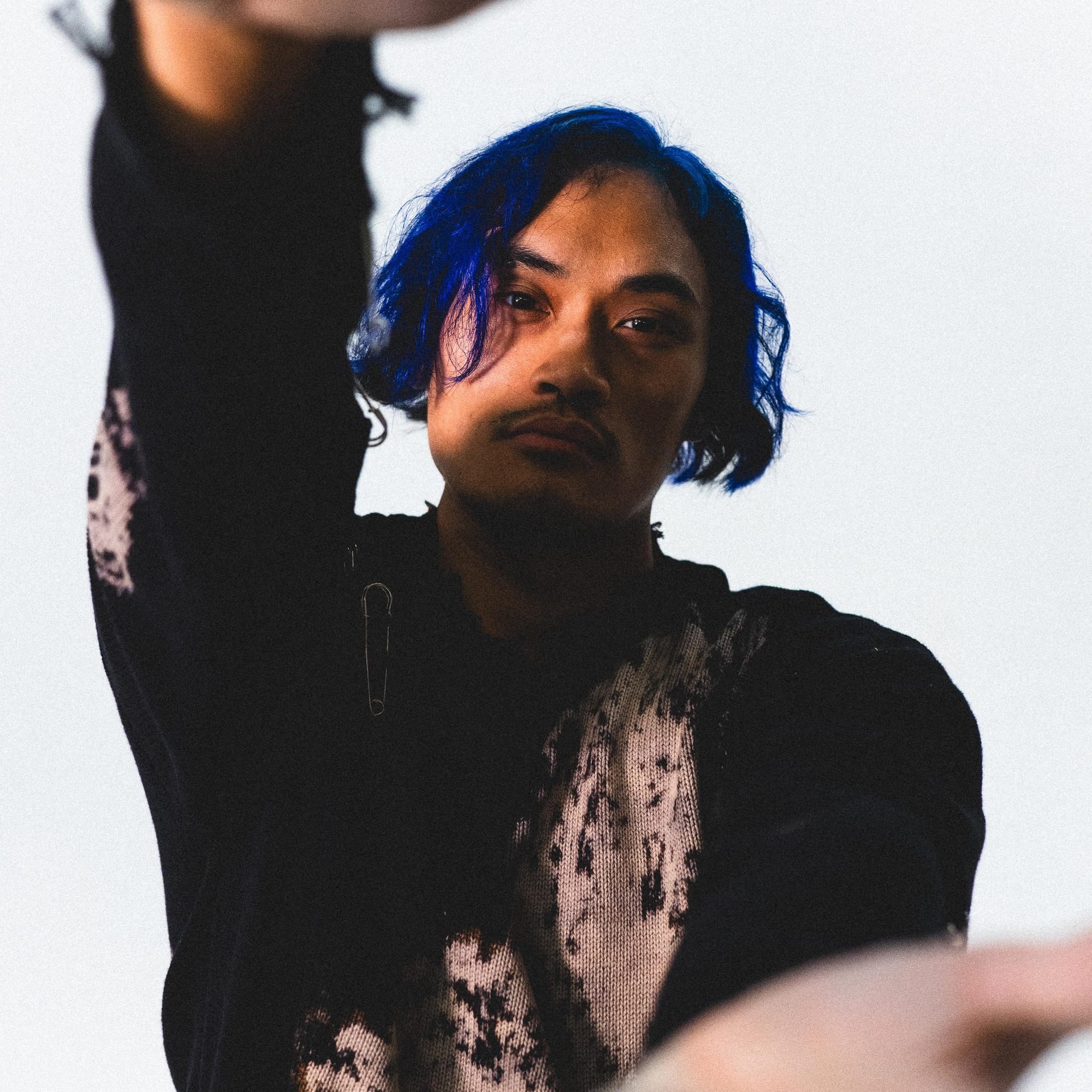
And bless my mom and her soul, she literally sold her car to pay for it; I owe her so much. We don't come from money at all. If anything, we come from, like, anti-money. And my mom's literally a refugee from Cambodia, but she knew how important it was to me to get this thing fixed, and she didn't like that I was dealing with this either. She didn't want me to feel that way. And so I decided to go through it during the winter break of my first year there.”
It wasn’t a decision made lightly. Darro explained as the interview went on that he had many factors at play in his ultimate choice. The surgery, as he stated, would have a better recovery time, but he was in Spain all alone. He had just gone through a rough breakup that he was still recovering from, and before he left the US, his mother had been through something similar. There was the feeling of being homesick, on top of the knowledge that there was a mess on the other side of the Atlantic that he would need to help pick up when he got there.
At the top of the list, though, was the fact that it was growing increasingly harder to handle the stress of very nearly not being able to recognize himself in the mirror as well as the continued difficulty to adjust to these changes to his body. In the end, he decided it was well worth the trials and tribulations to be able to regain his confidence.
The surgery takes place, let's say, Monday, and my plan was to get the surgery done and then go back to the United States for winter break and then come back. I was living in Valencia, which is about a two- to three-hour train ride from Barcelona. It's probably smarter and safer if I stay very close to the hospital.
He recounted the difficulties of being on a liquid diet and the struggle it was to take care of himself post-surgery all alone. But he also shared with me an insight that I wasn’t quite expecting. Something profoundly beautiful, even if the process of realization was horrifying.
Honestly, that week in the hotel might be one of the worst weeks [of my life]. I literally imprisoned myself in this hotel room. My hood was up the entire time. I didn't want anyone to see my face and how big it was. I would only leave the hotel room at night, straight-up Hunchback of Notre Dame style. I would not let anyone see my face.
I remember there was one night, maybe halfway through the week, that I was so desperate—cabin fever crazy. I went to the movie theater. They had a 24-hour movie theater, and I went to go see—I think it was one of the Star Wars movies that had just come out. I don't remember which one because I only went because I just needed to not be in the hotel room. And I sat all the way in the back of the theater, and I just remember just sitting there staring at the screens, hoping nobody else would walk in.
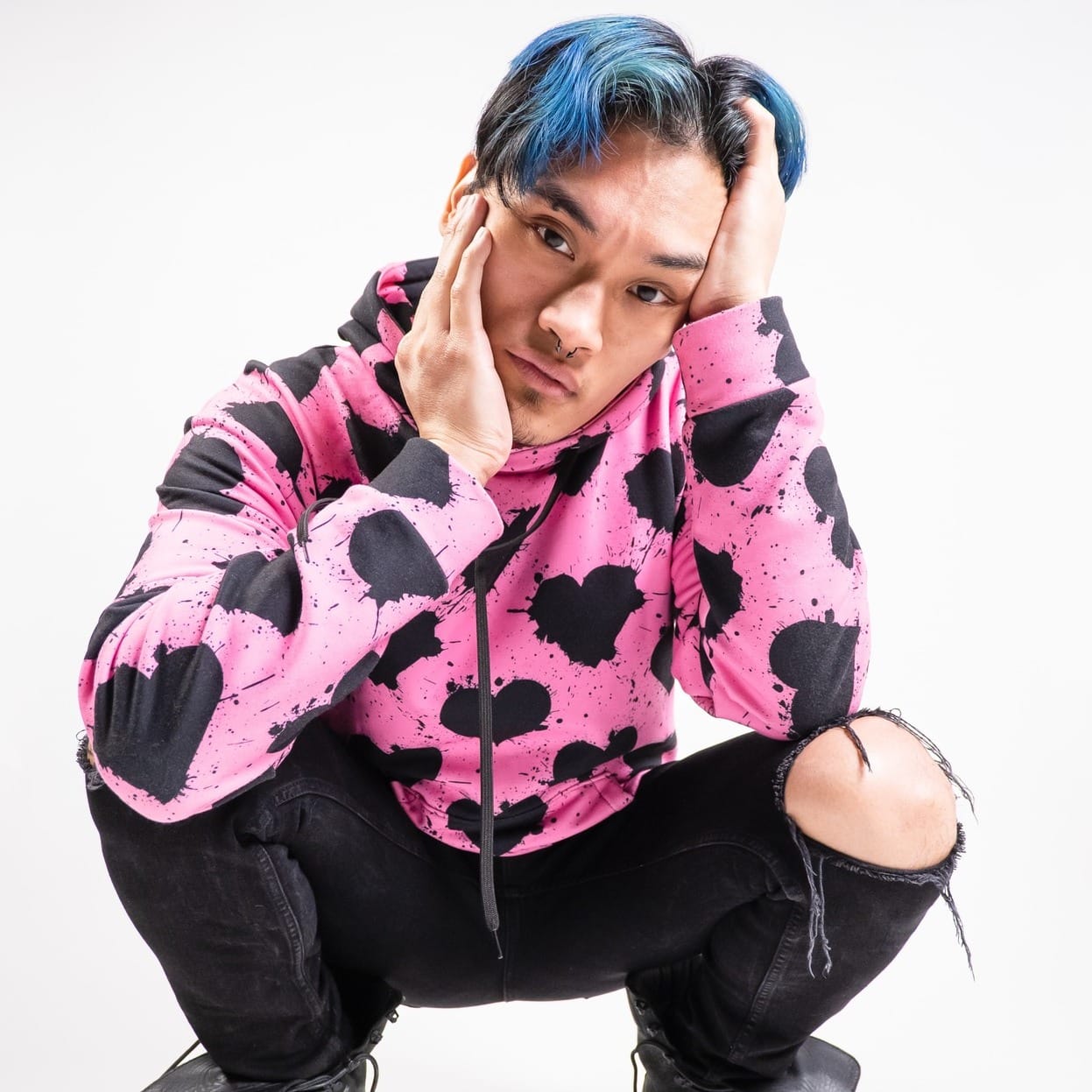
In contrast to this, he expands:
The surgery itself was completely painless. I didn't remember anything from it except waking up with my entire face clogged—not being able to breathe through my nose and stuff like that. And I started panicking.
It was actually kind of refreshing because I was so worried about all these other things, but all of a sudden, the only thing I was worried about was breathing because my nose was so clogged and my lips were really swollen shut.
I couldn't breathe through my nose, and my jaw was wired shut now, so I couldn't physically do anything. I called in a nurse, and she came in speaking in Spanish. ‘What's wrong?’ I was trying to figure out how to translate ‘can't breathe’ in my mind into Spanish. I remember asking for my phone, and I pulled out Google Translate. I told her, ‘I can't breathe,’ and then she looked at me and told me, ‘Oh, normal, normal.’
I didn't care if it was normal. I wanted to be able to breathe.
They stuck a tube—like an oxygen tube—in the corner of my mouth, and I was finally able to breathe from it. So thankfully, that tiny little relief was the one lifeline. That was the one relief that I had that entire week.
I was like, ‘Holy crap. I took breathing for granted’.
That type of revelation certainly hadn’t come easily. Darro continued to explain the aftermath of his surgery. The swelling of his jaw, the struggle to find a diet that he could sustain while not being able to eat solid foods, and the pain of having his jaw wired shut—an experience most people can’t even fathom being a possibility.
Re-learning how to move your own body isn’t exactly on anyone’s to-do list within their lifetime, but it was certainly a reality that had to be faced.
It was weird because it was just like my mouth didn't know how to do the thing. It was weird because I never thought mechanically about how to chew before, but it's literally a bite and grind—your teeth are literally grinding against each other. And I had no idea that that's what we do. So I couldn't figure it out. I was like, how do we chew?
And then singing was tough, obviously. Whenever I needed to sing, I had to unhook all of the wires and rubber bands in my jaw.
It was a long, hard journey, and even during the arduous process of recovery, he still had more to uncover about his fluctuating health.
Upon returning to the US, an entirely new saga was about to unfold.
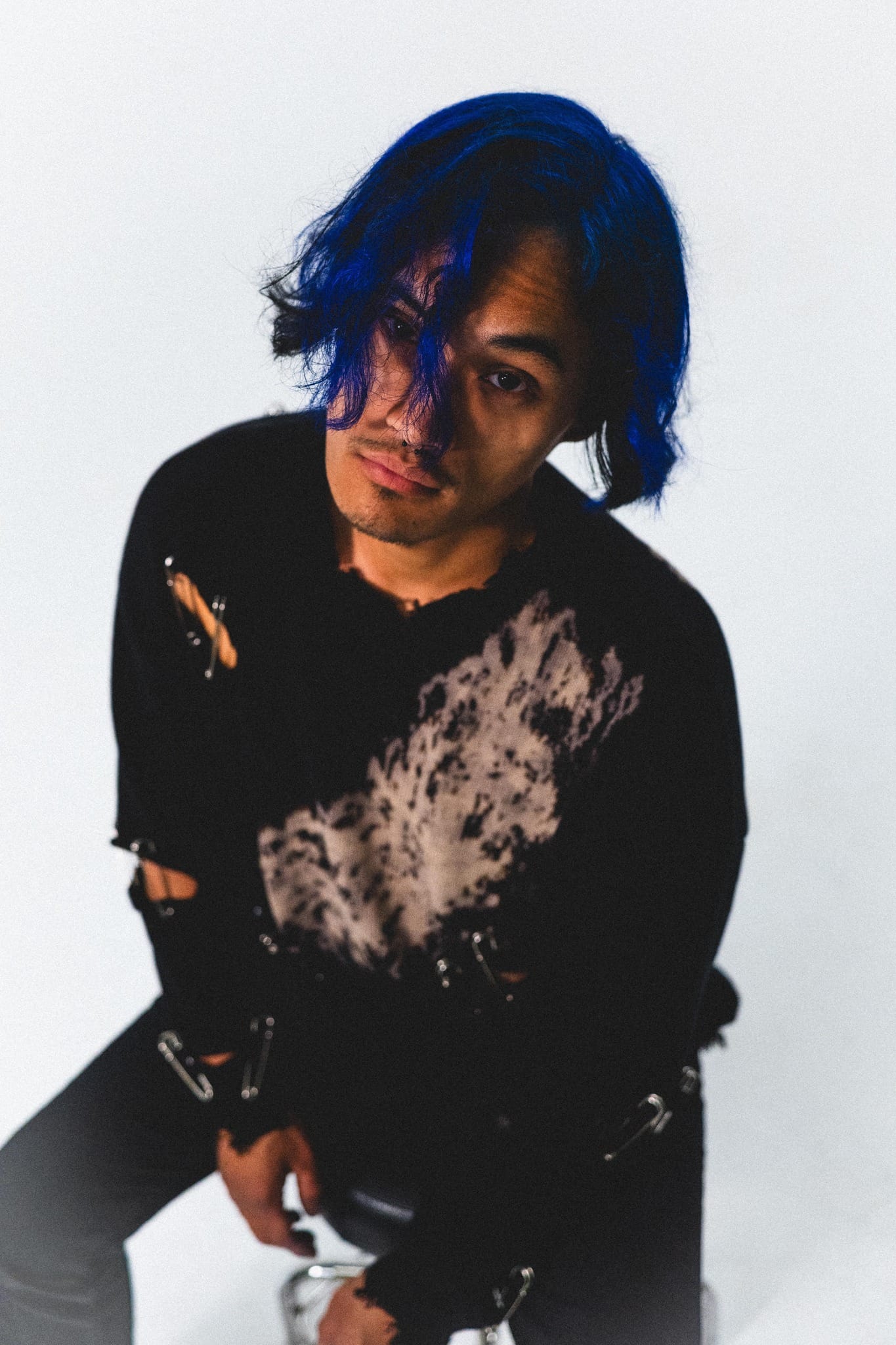
I started noticing peripheral vision problems, and as I was about to graduate, I thought, ‘Oh, it must be an eye infection. I need to get a new contact prescription anyway, so I'm going to finish my program, and then I'll talk to my eye doctor at home, and I'll have them figure it out.’
I must've been home on a Saturday or Sunday night, because I remember I set my appointment for 11:00 AM on a Monday. I get there, they do the [normal] tests, they give me the new prescription, but I tell them about my problems and that I'm having some issues and that I don’t know if there's an eye infection or whatever. So they say, ‘We can do this field of vision test and kind of take a look.’
So I did the test, and they're like, ‘Yeah, something's wrong here; let's see what's going on.’ So they made me wait outside, and then maybe 5 or 10 minutes later, they called me back into the room, and I saw his computer was on and he was on Google. He's on Google search. He's literally just looking up ‘optic nerve disturbance,’ and he basically said, ‘I think that there is something behind your eyes that is physically causing your issues. I don't think it's an infection'.
He was being very vague. He didn't want to say tumor. In hindsight, I can see that that was what was on the tip of his tongue, but he didn't want to say it out loud.
With an order from his doctor and little else to go on, Darro was sent on his way. The rest of the day consisted of a 9-hour wait in the local emergency room, followed by an MRI with contrast that he was allergic to, but even with the scan having to be cut short to administer antihistamines, it was enough imaging to bring about the devastating news that would put the temporary setback of his life (already extended past what he had imagined) quite a bit longer than expected.
So we got some images back, and it looks like there's a four-centimeter lesion at the base of your brain. It could be an adenoma [a benign (non-cancerous) tumor that affects granular cells]. It could be a schwannoma [another type of benign tumor that affects the nerves]. It could be cancer, or it could be fluid’.
They said the C word, and my mom just lost it completely. Her brain evaporates, and she's just freaking the fuck out. And I'm just sitting there trying to digest this.
It would be nearly another week, multiple scans, bags and bags of medications, and a lack of communication between staff before he would get the most important answer of his entire life. By some stroke of luck or miracle, the tumor was not cancerous—but it was causing a substantial amount of damage to his body. Something that he had already been dealing with for years—he simply hadn’t known the cause.
Darro was told that one mass was completely benign and not causing any problems. The other mass, however, was a pituitary tumor.
The pituitary gland is responsible for emitting the body’s hormones. Growth, metabolism, and stress response are all heavily affected by the health and proper functioning of the pituitary gland, and with something impeding on that gland, approximately 9 out of 10 patients are diagnosed with a condition known as acromegaly.
Acromegaly, as he would find out, was the cause of a myriad of the problems that he was enduring, including the development of his underbite and the strain on his eyesight. The most pressing problem that Darro was facing, though, was the risk that his imbalanced hormones, if not treated properly, could be fatal.
Surgery was no longer simply an option; it was vital. He was transferred to a hospital in Pittsburgh, where he was able to undergo the operation. While there was still quite the recovery process after the fact, the results of the removal of the tumor were immediate in some aspects.
I remember waking up, and the first thing I noticed was that I did not have any of the headaches that I was experiencing anymore [...] it was the lightest I had ever felt.
And then I remember [...] they were wheeling me down the hallway, and I saw this big orange couch [in a waiting room]. I was like, ‘That is the brightest orange I've ever seen.’ And I realized then, I can see. Not only can I see peripherally, but colors are so much more vibrant. And I was like, ‘Holy shit, I've been missing this. I've been living with my saturation down to 50%.’ It was crazy.
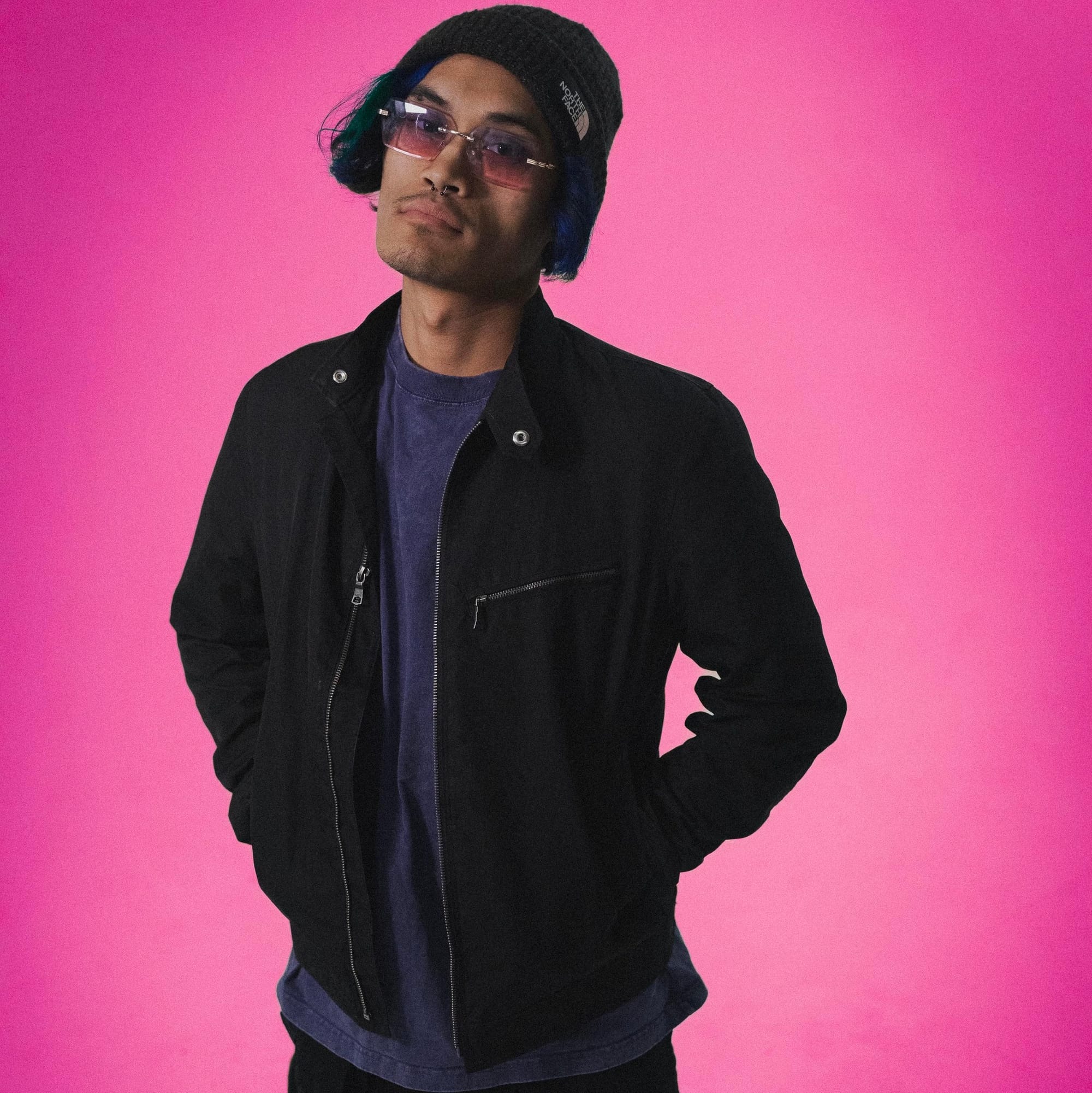
MSM: How old were you in 2017 when you were diagnosed?
I think I was 24.
That's a huge life change at a very young age. Life feels like it's just started.
That’s literally what it is. I didn't graduate fully from school until I was 24. I spent the last 10 years studying music. I thought, ‘Now I can finally go out and be an artist,’ and then I had a brain tumor. Then I have to spend the next year and a half to 2 years in recovery. It's like all of a sudden I felt like life was just starting and then had to pause and restart.
When you were doing recovery, what did that look like? Was that just the hormones? Did you have to do any sort of physical therapy?
No, there wasn't really any physical therapy. It was a lot of rebuilding strength and just rebuilding stamina, really. It took me maybe about a week before I could walk from one end of my house to the other end, from the living room to the kitchen, without feeling I was going to pass out. I was really weak for the first couple of weeks.
How did all of this change your worldview? You said you didn't realize that your literal view of the world was unsaturated or that things like breathing through your nose or chewing were things you’d never had to think about before. Are there other things that you changed your outlook on as well?
Definitely having to relearn things that I took for granted was one of them. I still feel the effects of just the mental part of putting my body through all of that. But I would say the number one thing that's changed about me, partially because for an entire week I legitimately thought I was probably going to die—
I became way more protective of my time.”
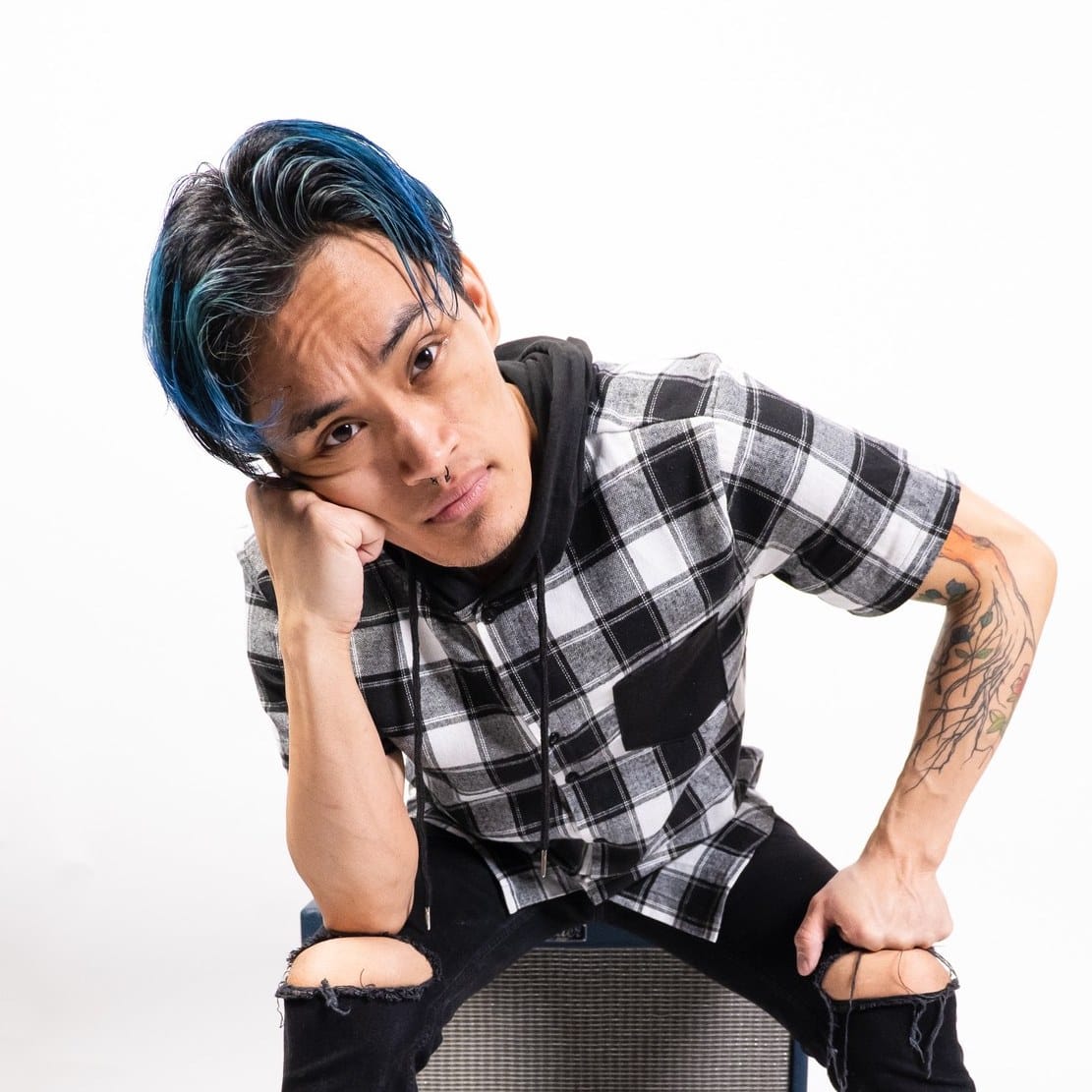
Money is really important, but more than anything else, time. Nothing angers me more than when I waste time on something that I didn't need to waste time on. I can always work and make more money, but I cannot get my time back, and I already felt like I lost so much time because of the tumor. It set me back years. So by far, my time is the most valuable thing to me. Because of that, the result of that is I'm more protective of who I give my time to, and I still am.
I used to be really, really hungry in the industry, and I would say yes to everything, but now I don't anymore. I’m learning how to say no to some things because I may not even be the best person for it. I have very much more so honed in on the things that matter to me, and I still struggle with it. There are things that I still have a hard time saying no to, especially people that I care about. But I'm more mindful about that now. I'm more mindful about experiences. I'm more mindful about—we really don't have that much time here.
No, it's a finite amount of minutes.
It is tough because in the very beginning, I would get inquiries from people that would want to work or collaborate, and I'm just like, ‘Dude, I don't have time.’ I still try to be very respectful of people and all that stuff, but I can't. I have to tell them, ‘I have a full slate, man. I'm sorry.’
Is that full slate because you’re working on new music?
Yes. I have two new songs, another one's being edited right now, and another one is in the very, very infant [stage of the] writing process. And it's one of those things where it's just like I'm trying to take my time with it because just like you can't get the years back with people and kids and family, you only get to release something once, really, so I'm trying to be more mindful about kind of savoring every release.
I used to try to turn out songs more quickly, but now I have a really, really hard time celebrating wins. I have such a chip on my shoulder that I will land something nice or big, like a press article or whatever, and I’m like, ‘Great. Next one.’ I won't celebrate. I remember I used to go out and buy myself dinner when I would release a song or something, and I don't do it anymore. And I feel like I really should.
I was about to say you should. It's big.
I guess I have that chip on my shoulder, and I don't feel like I deserve it. I have to achieve some level or some sort of status that I would want, but I do have to be better with patting myself on the back.
You mentioned your mom being a refugee from Cambodia. Do you think that specifically being Asian American in a vastly white-dominated industry has anything to do with having a chip on your shoulder? Feeling like you have to put in that massive extra effort?
Yeah, kind of. But honestly, it's not even because of the color of anybody's skin, really. I would say it's even less of a visual thing and more so just a privilege thing in the sense of—it is so hard to articulate it properly.
For example, I personally feel like I've had to claw for every single opportunity and every connection that I've made. Whereas some of my friends currently in the industry are literally on tour [bigger bands]. One of my buddies [...] he's one of those people that he's just such a lovable person and everybody loves him! But he grew up around this bass player; he's like his best friend. And it's just one of the situations where it's like, Wow. Sometimes you really just luck out with who your connections are.
Coming from being a first generation, et cetera, et cetera, we don't really have any prior establishments or connections. Whereas my friends that I went to college with, my friends that I play on tours with, and stuff like that, they’re like, ‘Yeah, my dad got me this job at RCA,’ or, ‘My mom was a receptionist at Universal, so she got me this internship.’ It's like, that's cool, but it’s about connections and how to get there, especially in the music industry.
Another thing, too, that I've noticed about the industry more than anything else is the talent and skill that goes without saying—so much so that people don't even talk about it, because if you didn't have that, you wouldn't even be in the conversation. So after that, the playing field is leveled—and of course, there are exceptional people—but for the most part because of that, everything is—the playing field is really level. So beyond that, the thing that really matters is your personality.
Can you fit? Can you hang? Can you vibe?
I feel like I'm fortunate to be able to identify that, and I can now. I'm pretty malleable, and I can fit myself into places.
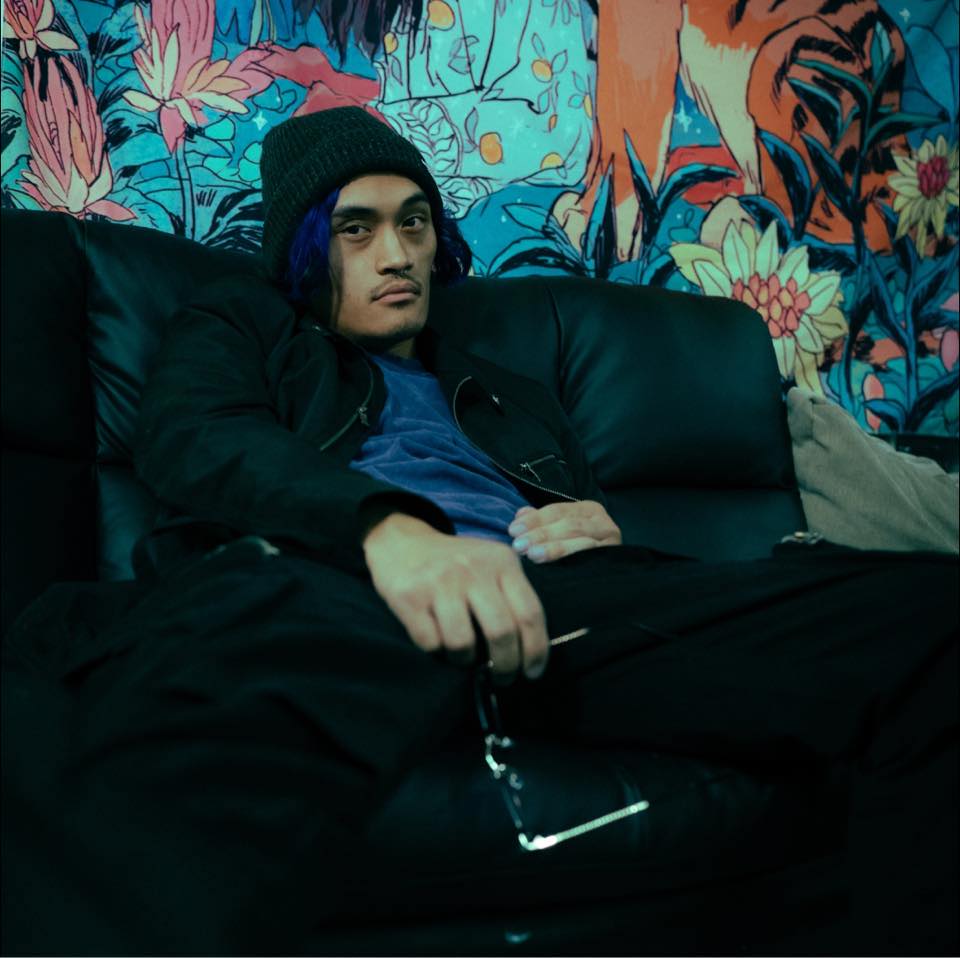
While he later explained his start in music being the experience of living with his father, who was a singer in a traditional Cambodian wedding band, Darro took a moment to answer the question of when he really got plugged into music—the tale of how he got from where he started to now.
I've been plugged in since high school. I started getting into the guitar around high school, but it wasn't until my first year in college where—so I didn't go to Berkeley right away. I didn't go to music school [at first]. I went to Temple University in Philly first because I was undecided, and I wasn't sure if I should go to music school.
But I was so deep into the guitar at this point, and it was when I went to this masterclass—it was a guitar masterclass with Steve Vai—he's my favorite guitar player of all time. I went to this masterclass with him, and I was like, ‘Wow, this guy's a virtuoso. I'm going to be like him someday.’
I had this issue when I was a kid, the Dunning-Kruger effect, where I was just like, you kind of think you're the shit until you realize you're not the shit, and so that was me. I was an arrogant senior high schooler thinking, oh, I'm the best guitar player in my high school. I went to an inner-city, urban high school. Not a single kid played the guitar. So, yeah, I was the best one. I was also the worst one. I was the [only] one. So I went to college not having any frame of reference, anyone to compare myself to, thinking that I was good.
Once in college, he recounts seeing other musicians who were studying music full-time, resulting in his decision to really buckle down and take things seriously. After an initial guitar lesson and realizing he still had a lot to learn, Darro put his nose to the grindstone.
I decided I was going to really do this, and literally for the next, about a year and a half, I was practicing like 7-8 hours a day full on. I was skipping class to practice. I literally failed my first year of college. I became known as that guy that wouldn't hang out with anybody. I was living in dorm rooms, and I had a guitar amp, and I had three other roommates. Three of them would go out and play Frisbee and do all this stuff, and I would just be in my room playing the guitar.
It was like that for about a year and a half for two years. Then the next year was when I decided that I was going to audition for schools, and that's when I started auditioning, and I auditioned for Berkeley. I also auditioned for Temple, which is where I was currently at, and I auditioned for Temple first, and I got in. I couldn't believe it. That, to me, was such a cathartic moment. It was like, ‘You deserve this. You earned this. You got in; you auditioned just like everybody else’.
It was so stupid. I remember the only reason I wanted to get accepted was because everyone on campus that was a guitar player—a major guitar player—had this very specific gig bag, like a soft-shell guitar case, and they all had the same brand. They all had the Reunion Blues guitar case. This is a $250 soft guitar case. And I was, ‘I want to be good enough to justify having one of these.’
When I was accepted, I bought one, and then years later they endorsed me. So that was even more awesome. I told them that story, and they were like, ‘Oh, we're going to endorse you right now.’ I'm pretty sure on my artist page on that website, I tell that specific story. It was my first major. ‘Wow. This is an endorsement by a company that I actually use, so that was really special to me.’
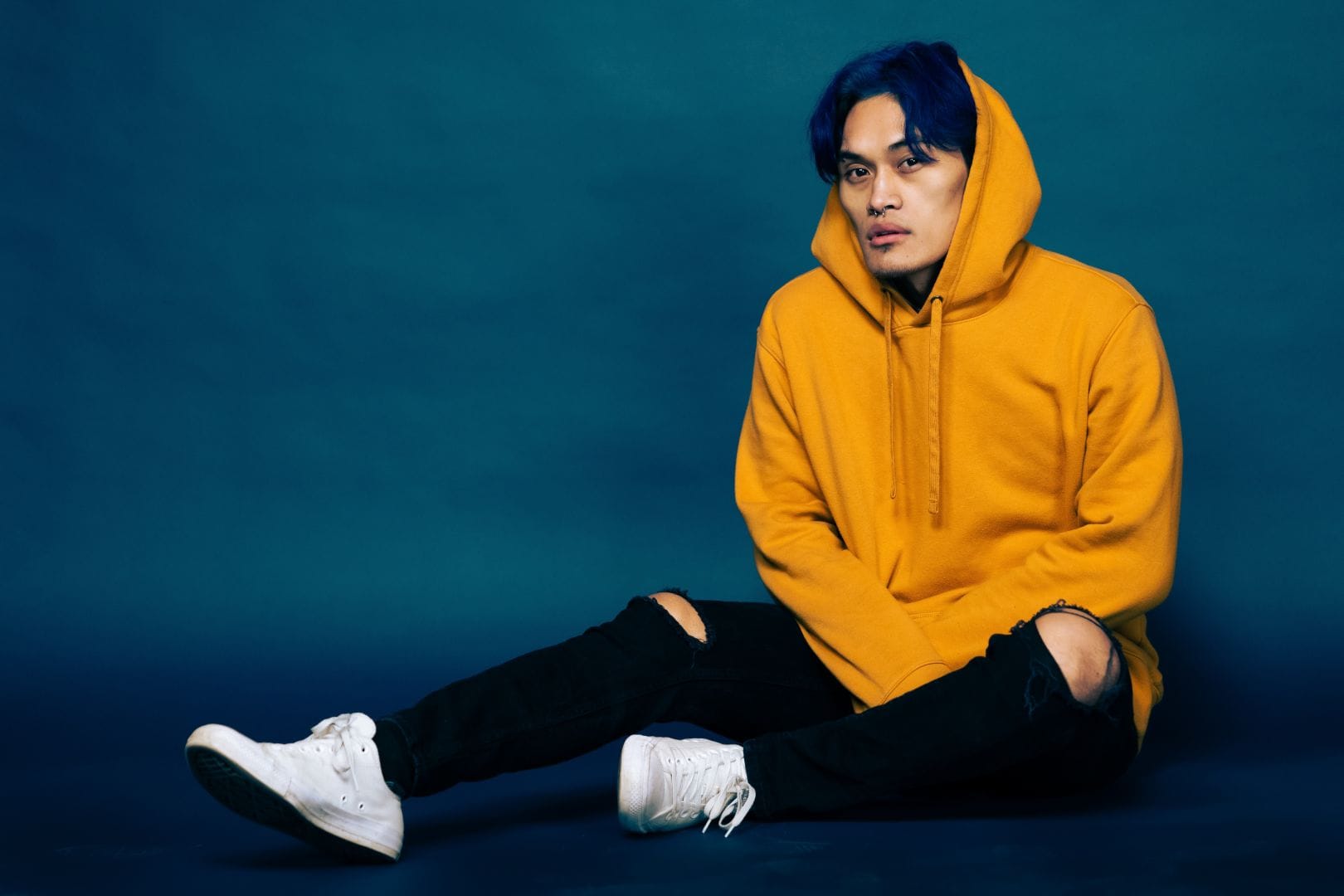
Speaking on his musical influences, it was interesting to find the variety between artists. More importantly, it was interesting to find the reasons why his tastes ended up varying quite so much.
In my younger years, just guitar, just shredding guitar, was my biggest influence. Steve Vai, Joe Satriani, Guthrie Govin, Animals as Leaders—all of those shred virtuoso guys. I still listen to them all the time, but it's different now when I listen to them. Part of it is because, after all the brain tumor stuff, my perception of what is important to me and the things that I have to say has completely changed just because of the experiences and stuff.
Always very angsty growing up, My Chemical Romance or early Paramore just blew the lid off of everything. I remember waking up every morning in 5th or 6th grade. I was living with my cousin at the time, and every morning we would get ready for school, and he would have VH1 on. The number of times I have woken up to ‘Helena’ at six in the morning...
It was either that or ‘Dance, Dance by Fallout Boy’, or Hawthorne Heights, or Story of the Year. My cousin would play the hell out of the ‘Page Avenue’ album. But for me [at the time], the guitar parts weren't challenging enough, so I was always more focused on the more showy guitar stuff. I learned all that stuff. But then it wasn't until I got out of school and I was getting bored of just playing guitar. It was fun, and there's still a part of me that really, really likes it, but it didn't feel like it was resonating with what I had to say.
I wanted to say things.
Darro went on to reflect on his feelings about writing music and the difficulties therein while wading through the world of expectations within the music industry.
I started transitioning into writing my own songs, and that was really hard because I was not an experienced writer at all. In fact, I used to hide behind my guitar. Writing is the hardest thing. You never know if what you have to say is going to resonate with somebody else. And then you start to compromise. You start to think, ‘Well, I would say it this way, but I feel like other people would want to hear it this way.’ Over time you put out songs, and then the results are different from what you expect or something. And then you're like, ‘Oh, let me write this next song a different way.’ And then you start tailoring your songs for specific results, then writing songs for the sake of writing songs.
Artists nowadays have so much to compare themselves to and so much frame of reference, and so much technology, and so many YouTube videos, and how to make it a certain way, and how to get a certain sound. They're like, 'Well, I'm going to take advantage of all of these things and put it all into my first album so that my first album is perfect.'
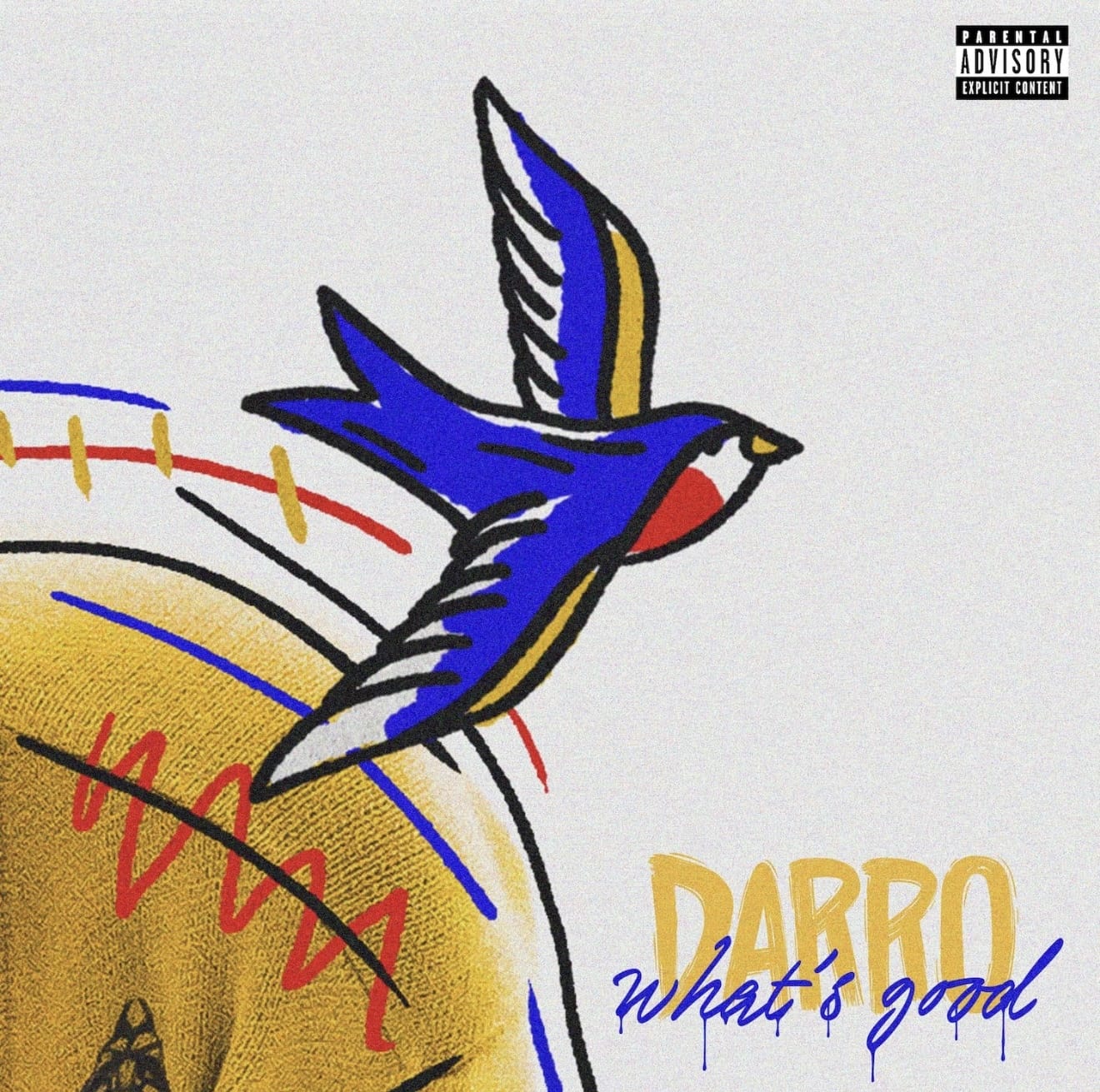
This is my third—I would say EP/album release, and I can't imagine the growth that I would've neglected if I was still on my first. You literally cannot improve without having something to look back on, and if you just spin your wheels for so long, you don't get the opportunity to release something and learn from your mistakes, which is going to be stuff that you need to learn from improv.
Darro went on to express another poignant sentiment about living in the moment. How producing music shouldn’t be about hoarding it until it’s perfect, but instead, writing in the now and releasing within the same now. To say what needs to be said when you need to say it.
His newest single, “What’s Good”—a song he has claimed to be his favorite, and according to his TikTok, his “best song yet”—is a testament to that. It’s a statement of his journey, his strength, and how he managed to fight through something that was seemingly impossible.
"This song is about betting it all on myself after life nearly took everything away. It's my story of surviving, starting over from scratch, and chasing my dream with nothing but grit and hope." - Darro
At the end of it all, the moral of this story, I think, is that if you have the will, there is always a way. That way may not be easy, and it may take you down particularly dark paths, but the end of the road is always worth it.
Luckily for us, Darro has no intentions of ceasing to inspire us any time soon. With two songs in the shoot and another in its infancy, we can look forward to this trailblazer of Posh Punk to keep chugging along and amazing us with his resilience every step of the way.
Follow DARRO: Instagram | Spotify | YouTube | TikTok
